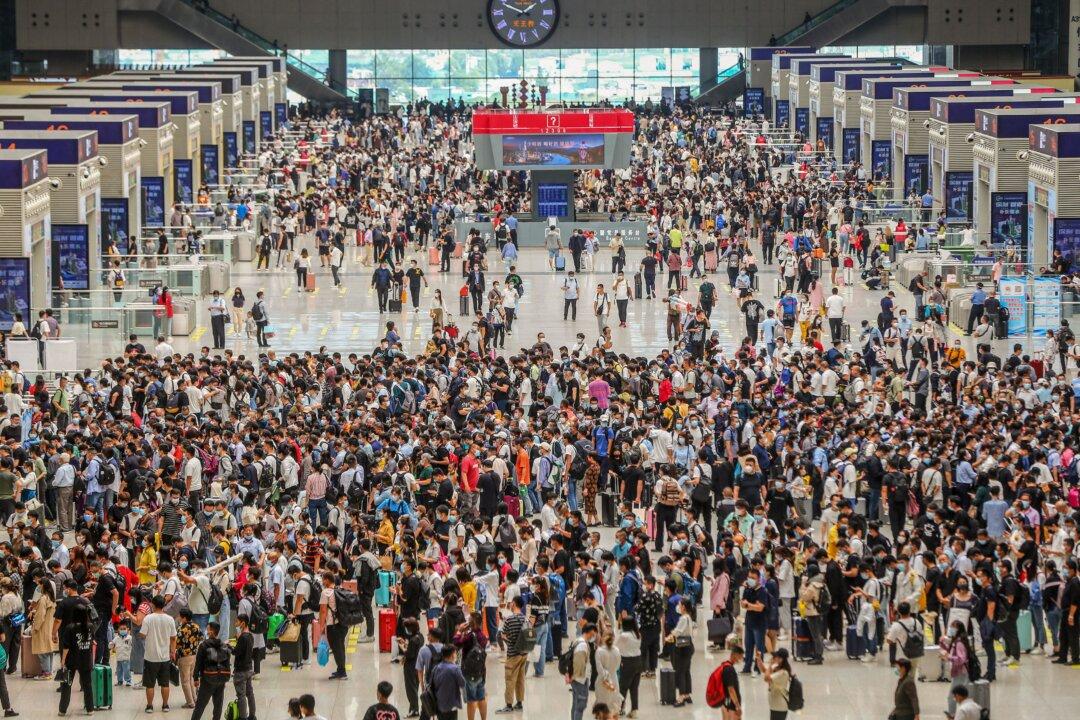The city of Zhengzhou in China’s Henan Province has shut down one of its most populated districts and put almost 1 million residents under lockdown because of a flare-up of COVID-19.
Residents were asked to remain in their homes beginning on Oct. 17. Nonessential businesses have been shut down. The only instances in which people are allowed to leave their homes is when they need to undergo COVID-19 tests.





